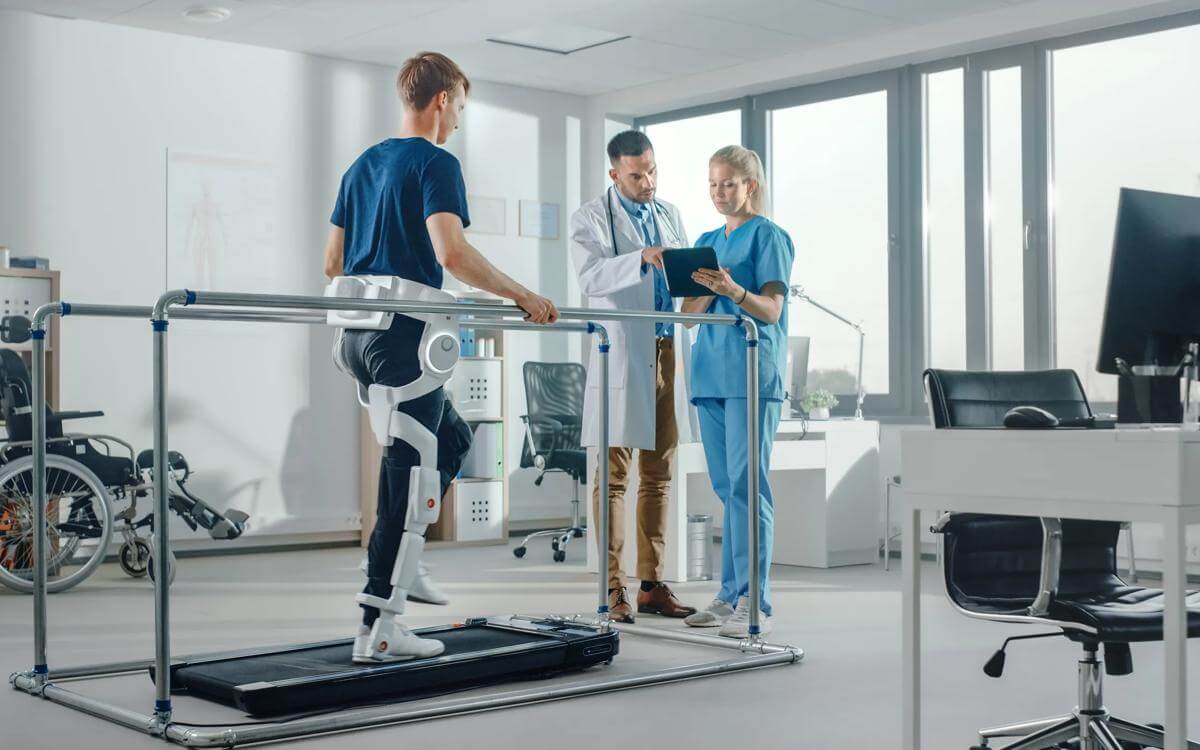The Ockenden Final Report – a blueprint for safe maternity care from ward to Board
The much anticipated final Ockenden report was published on 30 March 2020. The final report sets out the findings of the review into care provided to 1,486 families, and sets out a blueprint for safe maternity care.
The much anticipated final Ockenden report into maternity care failings at Shrewsbury and Telford NHS Trust (SaTH) was published on 30 March 2022. The final report sets out the findings of the review into care provided to 1,486 families, (involving 1,592 clinical incidents), primarily between 2000 and 2019, and sets out a blueprint for safe maternity care.
Overview of the final report
The review, which rightly put families’ voices centrally but also listened to staff experiences, builds on the findings of the first Ockenden report which was published in December 2020. It reinforces the importance of establishing and improving critical oversight of patient safety in maternity units and identifies 15 Immediate and Essential Actions (IEAs) to be implemented across maternity services in England to bring about timely positive and essential change.
The patterns of poor clinical care identified in the final report mirror issues identified by previous national reports into maternity care; themes we also continue to see in the context of claims and inquests such as failures to follow national guidelines, work collaboratively across disciplines, escalate concerns and delays in transfer. Furthermore, the report highlights significant failings in governance procedures and leadership which resulted in repeated missed opportunities and failures to learn.
The review acknowledges the huge pressure maternity services and their staff continue to face, which have been compounded by the pressures arising from Covid-19. In addition to funding issues there are significant workforce challenges, particularly in the recruitment and retention of midwives and obstetricians. However, the indication within the report that there remain ongoing barriers preventing learning following serious maternity incidents is highly concerning.
Summary of the Immediate and Essential Actions
The final report sets out 60 Local Actions for Learning (LAfL) specific to SaTH. However, many of the issues identified by the Ockenden review team are not isolated to SaTH and maternity services in England now need to build on the work they started following the first Ockenden report.
With this in mind, the final report sets out 15 Immediate and Essential Actions (IEAs) which are intended to make a significant contribution to the delivery of safe maternity care, and which complement and expand on the IEAs issued in the first report. These actions must be implemented across all maternity services. It is recognised that change will not be achieved overnight but clear that action is required now at all levels, from ward to Board, in order to improve care and safety in maternity services.
We summarise the actions highlighted in the following areas:
Operationally and at ward level
- Workforce planning and sustainability, including the need for nationally agreed minimum staffing levels, or where there is no national agreement, staffing levels agreed locally with the Local Maternity and Neonatal System (LMNS).
- Training for midwifery staff needs to be formalised, to include a robust preceptorship programme for newly qualified midwives (NQMs), which supports supernumerary status during their orientation period and protected learning time for professional development, as per the RCM position statement for this. A proportion of maternity budgets must be ring fenced for the provision of appropriate training.
- Safe staffing - including the need to maintain a clear escalation and mitigation policy where maternity staffing falls below the minimum staffing levels for all health professionals. Trusts must also review and suspend if necessary the existing provision and further roll-out of midwifery continuity of carer model unless they can demonstrate staffing meets safe minimum requirements on all shifts.
- Escalation and accountability - staff must be able to escalate concerns with clear guidelines for when a consultant obstetrician should attend.
- Multidisciplinary training – a reinforcement of the need for staff who work together to also train together, to include training on local handover tools and mandatory training on human factors. All staff must be trained and up to date in CTG and emergency skills.
- Complex antenatal care - local maternity systems, maternal medicine networks and Trusts must work together to ensure that women have access to pre-conception care in line with relevant national guidance.
- Labour and birth – the report sets out various requirements to improve care, including the need for women who choose birth outside a hospital setting to be provided with accurate advice with regards to transfer times to an obstetric unit should this be necessary. In addition, all women must undergo a full clinical assessment when presenting in early or established labour to include a review of any risk factors and consideration of whether any complicating factors have arisen that might change recommendations about place of birth. These must be shared with women to enable an informed decision regarding place of birth to be made. Centralised CTG-monitoring systems should also be mandatory in obstetric units.
- Pre-term births - The LMNS, commissioners and Trusts must work collaboratively to ensure systems are in place for the management of women at high risk of preterm birth. Trusts must implement NHS Saving Babies Lives Version Two (2019), also Safety Action 6 of NHS Resolution’s Maternity Incentive Scheme.
- Obstetric anaesthesia - In addition to routine inpatient obstetric anaesthesia follow-up, a pathway for outpatient postnatal anaesthetic follow-up must be available in every Trust to address incidences of physical and psychological harm.
- Post-natal care - Women readmitted to a postnatal ward and all unwell postnatal women must have timely consultant review.
- Bereavement care - Women who have suffered pregnancy loss must have appropriate bereavement care services.
- Neonatal care - There must be clear pathways of care for provision of neonatal care and the recommendations from the Neonatal Critical Care Transformation Review (December 2019) must now progress at pace.
- Supporting families - Care and consideration of the mental health and wellbeing of mothers, their partners and the family as a whole must be integral to all aspects of maternity service provision. The report sets out a number of strategies to achieve this including the need for robust mechanisms for the identification of psychological distress, and clear pathways for women and their families to access emotional support and specialist psychological support as appropriate.
Clinical governance and Organisational Learning
- Incident investigation and complaints - this includes the need for incident investigations to be meaningful for families and staff and for lessons to be learned and implemented in practice within 6 months of the incident. Maternity governance teams must ensure the language used in investigation reports is easy to understand for families. The report supports the move towards a more proactive approach to safety and learning investigations under the Patient Safety Incident Response Framework (PSIRF) which is due to be gradually implemented across NHS Trusts from Spring 2022, replacing the Serious Incident Framework (2015). Under PSIRF, there will be a standardised investigation template and providers are encouraged to bring patient safety and complaints teams together to encourage a collaborative and coordinated process. The importance of monitoring complaints themes and trends is also highlighted.
- Learning from maternal deaths - nationally, all maternal post-mortem examinations must be conducted by a pathologist who is an expert in maternal physiology and pregnancy-related pathologies. In the case of a maternal death, a joint review panel or investigation of all services involved in the care must include representation from all applicable hospitals or clinical settings. Learning from this review must be introduced into clinical practice within 6 months of the completion of the panel and shared across the Local Maternity System (LMS).
Leadership including the Board
- Clinical governance leadership – the report builds on the first report to reinforce the need for leadership and critical oversight of the quality and performance of their maternity services. This includes the requirement for the director of midwifery and clinical director for obstetrics to be jointly operationally responsible and accountable for the maternity governance systems and the appointment of a Patient Safety Specialist dedicated to maternity services. Trust boards must also work together with maternity departments to develop regular progress and exception reports and assurance reviews, and regularly review the progress of any maternity improvement and transformation plans.
Get in touch
Following the publication of the final Ockenden report, we understand that Trusts will be working to further scrutinise their own provision of maternity care and safety culture, and to consider how to effectively share and implement the IEAs.
We can provide a number of services to support Trusts with maternity improvement work and the implementation of the IEAs. We also have our own maternity services resource hub which provides training materials and resources to support the improvement work underway in maternity units and the claims, inquests, regulatory and workforce issues that result from obstetric and neonatal harm.
We will also be discussing the impact of Ockenden and the implementation of the IEAs from ward to Board at our Shared Insights session on 17 May 2022 – more details to follow.
If you would like to discuss how we might be able to support your organisation or for more details of the Ockenden Shared Insights session on 17 May 2022, please contact:
Contact

Amelia Newbold
Risk Management Lead
Amelia.Newbold@brownejacobson.com
+44 (0)115 908 4856








































